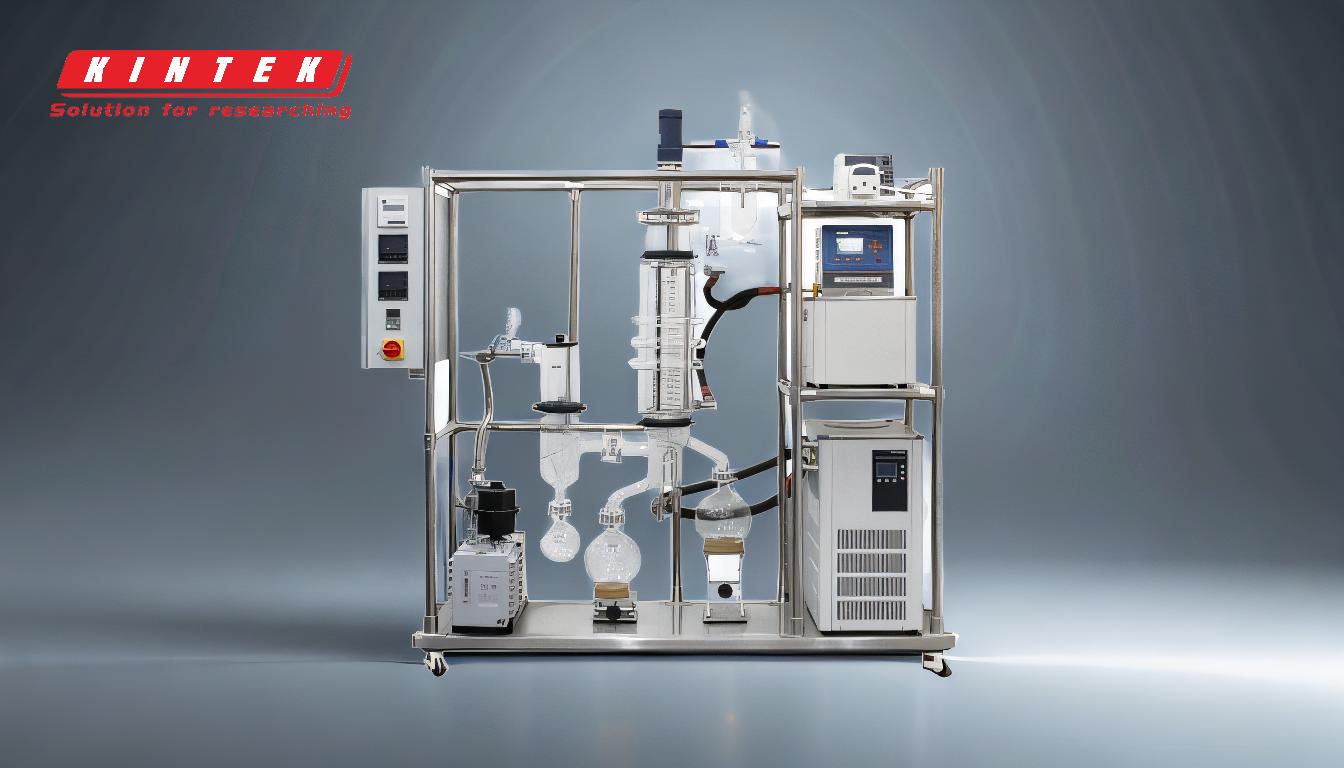Distillation is a critical process used across various industries to separate and purify substances based on their boiling points. It is essential in producing distilled water for applications like lead-acid batteries and humidifiers, as well as in desalination for drinking water. Distillation is also widely used in the production of alcoholic beverages, perfumes, and food flavorings, where it helps extract and purify desired compounds. In industrial settings, it plays a role in oil stabilization, air separation, and the purification of chemical synthesis products. Additionally, distillation is integral to the production of cannabis-derived products, such as CBD and THC, and botanical essential oils.
Key Points Explained:

-
Water Purification and Desalination
- Distillation is used to produce distilled water, which is free of impurities and minerals.
- Applications include:
- Lead-acid batteries, where pure water is required to maintain battery performance.
- Low-volume humidifiers, where distilled water prevents mineral buildup.
- Desalination of seawater to produce drinking water, especially in regions with limited freshwater resources.
-
Alcoholic Beverages
- Distillation is a key step in the production of spirits like whiskey, vodka, and rum.
- The process separates alcohol from fermented mixtures, concentrating the desired ethanol content while removing impurities.
- This ensures the final product has the desired flavor, aroma, and alcohol concentration.
-
Perfumes and Food Flavorings
- Essential oils and aromatic compounds are extracted from herbs, flowers, and plants using distillation.
- These extracts are used in:
- Perfumes, to create fragrances.
- Food flavorings, to enhance taste and aroma in culinary applications.
-
Oil Stabilization
- In the petroleum industry, distillation is used to stabilize crude oil by reducing its vapor pressure.
- This makes the oil safer for storage and transportation by minimizing the risk of evaporation or explosion.
-
Air Separation
- Cryogenic distillation is used to separate air into its primary components: nitrogen, oxygen, and argon.
- These gases are essential for various industrial and medical applications, such as welding, chemical synthesis, and respiratory support.
-
Chemical Synthesis
- Distillation is used to purify liquid products obtained from chemical reactions.
- It ensures that the final product meets the required purity standards for industrial or laboratory use.
-
Cannabis and Hemp Products
- Distillation is employed to extract and purify cannabinoids like CBD and THC from cannabis and hemp.
- This process is crucial for producing concentrates used in vape pens, edibles, and medicinal products.
-
Botanical Essential Oils
- Distillation is the primary method for extracting essential oils from plants.
- These oils are used in aromatherapy, cosmetics, and natural medicine.
By understanding these applications, equipment and consumable purchasers can better identify the specific distillation products and systems required for their industry or project.
Summary Table:
| Application | Key Uses |
|---|---|
| Water Purification | - Distilled water for lead-acid batteries, humidifiers, and desalination. |
| Alcoholic Beverages | - Production of spirits like whiskey, vodka, and rum. |
| Perfumes & Food Flavorings | - Extraction of essential oils and aromatic compounds. |
| Oil Stabilization | - Reducing vapor pressure in crude oil for safer storage and transportation. |
| Air Separation | - Cryogenic distillation to produce nitrogen, oxygen, and argon. |
| Chemical Synthesis | - Purification of liquid products for industrial or laboratory use. |
| Cannabis & Hemp Products | - Extraction and purification of CBD, THC, and other cannabinoids. |
| Botanical Essential Oils | - Extraction of essential oils for aromatherapy, cosmetics, and medicine. |
Need distillation solutions for your industry? Contact our experts today to find the right products for your needs!









